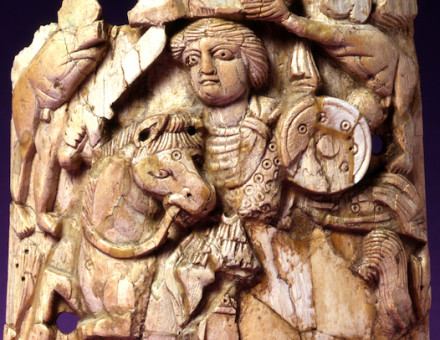The Philosophical Testament of Johannes Haller
As it has fallen to the lot of our generation to relive the experiences of a Jeremiah and Josephus, writes Martin Braun, it is not surprising that a literature of historical self-analysis has sprung up in post-war Europe—most notably in Germany.
There is, perhaps, no more arresting tableau in the whole of ancient history than that of Scipio Aemilianus, looking down on the city once so mighty and now prostrate, and weeping at the sight of universal destruction. What the flames of Carthage conjured up in his mind was the common destiny of Man—the doom of all the empires that had ever existed, from Babylonia to Alexander the Great, the fate that one day would befall triumphant Rome herself.
Indeed, of all the stimuli to historical self-awareness none is so poignantly immediate as the sight of a city in ruins, or of a nation in the agony of despair. The history of historiography bears this out time and again.
Yet whereas a Scipio acquiesced in the one-dimensional Stoic idea of an inescapable Destiny, who by bestowing and transferring her “seasonal” gifts of power and prosperity kept the cyclic order of the universe going, the Hebrew prophets, faced with the debris of cities and nations in one of the truly catastrophic ages of history, took hold of the two-dimensional or “dialectic” concept of God as Lord and Judge of History.





